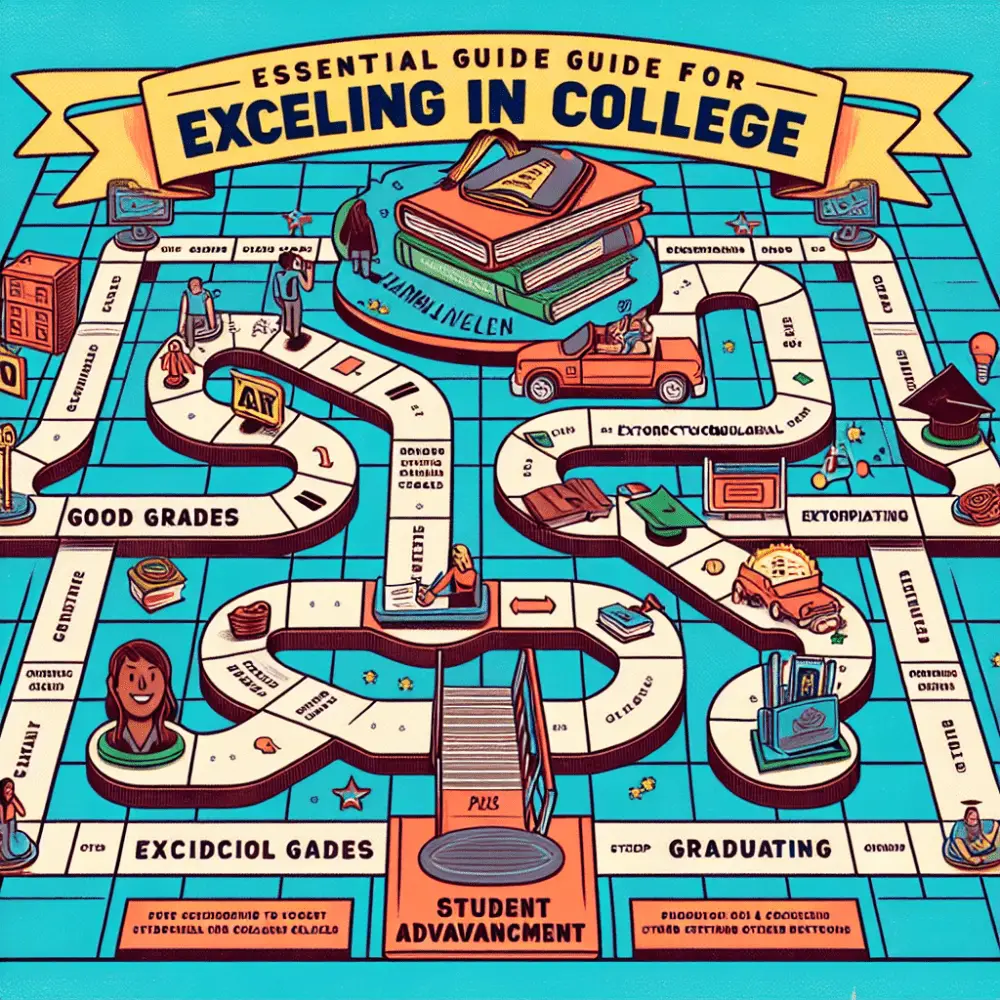
Congratulations! You have embarked upon an exciting journey to pursue higher education. College is a transformative time filled with new experiences, challenges, and opportunities for personal and academic growth. To maximize your potential and make the most of your college years, it is essential to have a roadmap for success.
In this guide, we will provide you with valuable insights and tips on how to excel in college. From developing effective study habits to managing time efficiently, we will cover key areas that can significantly contribute to your student advancement. So, let’s dive in and unlock the secrets of thriving in college!
Choosing the Right Major
One of the critical decisions you will face early on in your college journey is selecting the right major. Your choice of major will shape your academic path and potentially influence your future career prospects. Here are some tips to help you make an informed decision:
- Reflect on your interests and passions: Consider what subjects excite you and align with your long-term goals.
- Research career opportunities: Explore various professions related to different majors to understand the potential job market.
- Talk to advisors and professionals: Seek guidance from academic advisors or professionals working in fields you find interesting.
- Consider flexibility: Opt for majors that offer versatility or allow room for specialization or exploration.
Remember, choosing a major does not mean you are locked into one path forever. Many students switch majors during their college years as they discover new passions or refine their interests.
Developing Effective Study Habits
Studying is a fundamental aspect of college life, and establishing effective study habits can significantly impact your academic success. Here are some strategies to enhance your studying experience:
- Create a study schedule: Plan your study sessions in advance, allocating dedicated time for each subject.
- Find your optimal environment: Experiment with different study environments and determine where you are most productive.
- Break it down: Divide complex topics into smaller, manageable sections to enhance comprehension and retention.
- Use active learning techniques: Engage in discussions, participate in group projects, and seek out hands-on learning opportunities.
- Utilize technology wisely: Leverage digital tools and resources to supplement your learning process and stay organized.
By adopting these habits, you will not only improve your academic performance but also develop skills such as time management, discipline, and critical thinking that will benefit you beyond the classroom.
Building Strong Relationships
College is not just about academics; it is also an opportunity to build lifelong connections. Here are some ways to foster meaningful relationships during your college years:
- Get involved in extracurricular activities: Join clubs, sports teams, or student organizations that align with your interests.
- Attend social events: Participate in campus events such as orientations, mixers, or networking sessions to meet new people.
- Create study groups: Collaborating with classmates for assignments or study sessions can strengthen bonds while enhancing learning.
- Cultivate relationships with professors: Attend office hours and engage in discussions to build rapport with faculty members who can provide guidance and mentorship.
- Be open to diversity: Embrace the diverse community on campus and seek opportunities to learn from different perspectives.
Remember, the connections you make in college can lead to future job opportunities, lifelong friendships, and personal growth, so invest time and effort in building strong relationships.
Managing Time Efficiently
College life can be overwhelming with multiple commitments and deadlines. To stay on top of your responsibilities, mastering time management is crucial. Here are some tips to help you effectively manage your time:
- Create a schedule: Use a planner or digital calendar to track your classes, assignments, extracurricular activities, and personal commitments.
- Prioritize tasks: Identify urgent and important tasks and allocate time accordingly.
- Avoid procrastination: Break larger tasks into smaller, manageable chunks to prevent last-minute cramming.
- Eliminate distractions: Minimize interruptions by turning off notifications on your phone or finding a quiet space for focused work.
- Take breaks: Allow yourself short breaks during study sessions to recharge and maintain productivity.
By managing your time effectively, you can strike a balance between academics, social life, and self-care, leading to reduced stress levels and overall well-being.
Frequently Asked Questions (FAQ)
1. How do I handle a heavy course load?
Handling a heavy course load requires effective planning and organization. Prioritize your assignments based on deadlines and importance. Break down complex tasks into smaller goals to prevent overwhelm. Seek help from professors or tutoring services if needed. Remember to take care of yourself by maintaining a healthy lifestyle and seeking support from friends or counselors when necessary.
2. How can I improve my writing skills in college?
Improving writing skills is a gradual process. Utilize campus resources such as writing centers or workshops to receive feedback on your writing. Practice regularly by writing essays, research papers, or journal entries. Read extensively to expand your vocabulary and expose yourself to different writing styles. Seek guidance from professors or classmates who excel in writing for additional tips and insights.
3. How do I stay motivated throughout college?
Staying motivated in college can be challenging at times, but there are strategies that can help. Set clear goals for yourself and regularly remind yourself of why you chose to pursue higher education. Break down long-term goals into smaller milestones to track your progress and celebrate achievements along the way. Surround yourself with supportive peers who share similar ambitions and engage in activities that inspire you.
4. What should I do if I feel overwhelmed or stressed?
Feeling overwhelmed or stressed is common in college, but it’s important to address these feelings promptly. Seek support from campus counseling services or student support groups to talk about your concerns. Practice stress management techniques like deep breathing exercises, meditation, or engaging in physical activities. Prioritize self-care by getting enough sleep, eating well, and taking breaks when needed.
5. How can I make the most of my college experience?
To make the most of your college experience, embrace opportunities for personal growth and exploration. Get involved in campus activities that interest you and step out of your comfort zone to try new things. Build relationships with professors who can provide guidance and mentorship throughout your academic journey. Take advantage of internships, study abroad programs, or research opportunities to gain practical experience relevant to your field of study.
Remember, college is not just about earning a degree but also about discovering your passions, developing critical skills, and shaping your future. With this roadmap to college excellence, you are well on your way to a successful and fulfilling college journey. Best of luck!

















